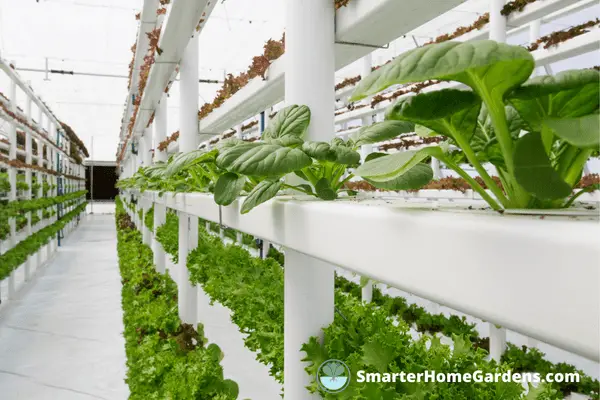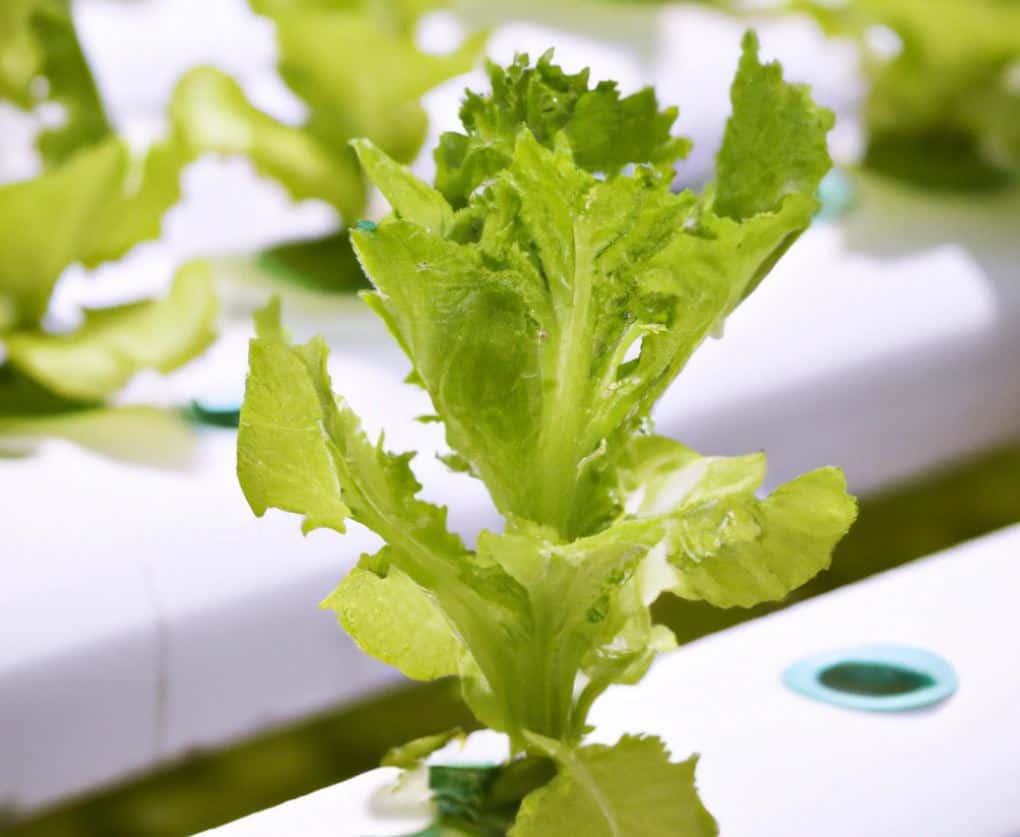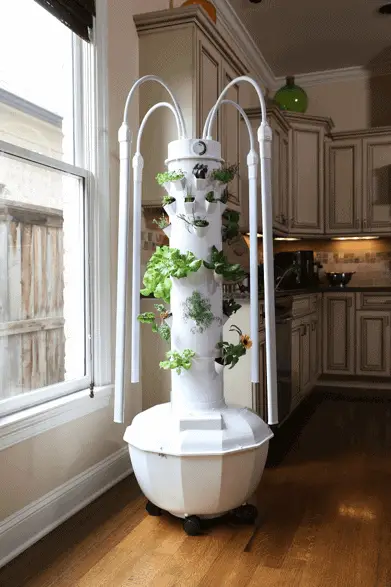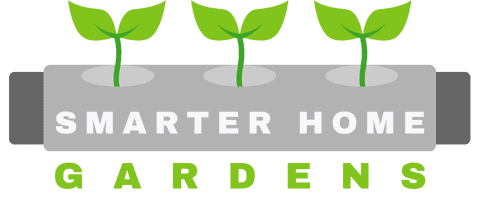
Hydroponics has gained popularity over the last several years. Many people support this trending growing practice for various reasons. But there’s this nagging question about whether the food actually tastes good. And if it tastes better than greens and veggies that are grown in soil.
Having grown food both hydroponically and traditionally in soil I have my own opinion. But to get the whole picture and so I did a little more investigating. Here’s a summary of what I found:
As a general rule, food grown via hydroponics tastes better than soil-grown equivalents. This is because hydroponic growers have much better control over their environment and are able to micromanage the main factors affecting the flavour. Hydroponics also reduces the need for herbicides and pesticides which can negatively affect the way food tastes.
So, my online research is telling me that food grown with hydroponics does in fact taste better than that grown in the soil. But how much better? And, more importantly, why? To understand that I need the help of some experts.
What do the experts have to say about this?
The best way to get to the bottom of all these questions was to ask the industry experts and see if they too said it was possible to grow tastier food hydroponically. So, that’s exactly what I did. I asked three of the leading vertical farms and asked them straight up: Does hydroponic food taste better?
Here’s what they had to say:

“Hydroponic produce frequently exceeds soil grown produce in terms of flavor and nutrition. This is because all of the nutrients required by the plant are immediately available when the plant needs them.”
General Hydroponics spokesperson

“[In our vertical farms we] fine-tune the farms indoor environment to boost plants’ natural flavour chatacteriastics and bring out the stronger sweet, spicy and herbacious notes.”
V-farm repersentative

Altius Farms’ products taste great. They are hyperlocal, delivered in most cases the same day. They are grown with organic practices, are none GMO and we do not use chemicals or pesticides. It has a higher nutritional density because it is locally grown in controlled environments – producing a consistently high quality product.
CEO, Altius Farms
I know it seems counterintuitive for food that’s grown in only water to actually taste better. There’s an assumption the food will taste bland, have little flavour, or seem watered down. According to the experts though, this is definitely not the case.
To round things off (and to counteract any industry bias) I asked the amateur hydroponics community the same question. And the results were, let’s say…a little different. But more on that at the end of the article.
First, let’s take a short dive into what determines flavour in food to explore why it is technically possible to grow tastier food using hydroponics.
Why does food grown via hydroponics taste better than food grown traditionally in soil?

1. Growers have much more control of their environment
Hydroponic growers are better able to manage the factors affecting plant growth and, in turn, the flavour of the food harvested.
There are three main factors affecting plant growth and flavour: sun exposure, nutrient uptake, and water composition. A lot of hydroponics, especially in commercial farms, exists within a controlled greenhouse environment providing the grower with more opportunities to manage each of these factors.
Control over light
In such environments, sun exposure can be increased through the use of full-spectrum lights and decreased through the use of shades and blinds. This means no matter where the food is grown, its taste will not be affected. Unlike traditional growing methods which rely on mother nature to provide the right amount of sunlight, indoor hydroponics can regulate sun exposure for optimal plant growth and taste.
Control over nutrients
Every plant needs a specific combination of nutrients for growth and development. Conventional soil growing mainly relies on whatever nutrients are already available in the soil. Hydroponic growing, however, allows the growers to create the perfect cocktail of nutrients needed for each plant grown and to adjust the amounts throughout the life of the plant so plants will have the right nutrients available just when they need them. Doing so can dramatically enhance the flavour of the resulting crop and even result in a much more nutritious and healthier harvest.
Control over water
Lastly, water use and composition are easier to regulate in hydroponic growing. Soil growers are stuck with whatever their local water source is or simply reliant on the rain. Hydroponic growers control where their water comes from and can control the water’s macro and micronutrient content. They are also able to adjust the pH of the water they use and ensure harmful substances that hinder plant growth, like sodium and chlorine, are not present.
Easy manipulation of these three factors gives hydroponically grown food a boost in the growth department and a boost in the taste department as well. Having exact control over plant growth through sun exposure, nutrients, and water quality means the plants can be grown in the best way possible and have the best taste as a result.
2. Purposely stressing out plants to lead to better flavour
Plants grown in a natural environment outdoors are subject to things like drought, frosts, and unpredictable weather which can negatively or positively affect flavour. These types of harsh conditions oftentimes force the plant to concentrate compounds and volatiles within itself which in turn creates a more flavorful profile of the harvested food.
The problem is that soil-based growers have no control over the outdoor environment.
On the other hand, indoor hydroponics (and to a lesser extent outdoor hydroponics) is a micromanaged environment in which growers do not have to worry about harsh growing conditions, but instead can purposely expose their plants to these kinds of stressors for a more flavorful harvest.
How can you artificially enhance the flavour of your harvest?
| Plant | Stressor | Result |
|---|---|---|
| Chilli Peppers | Increasing the electrical conductivity of the water | Chilli peppers respond by increasing the production of capsaicin, which enhances the flavour. |
| Rosemary | Blowing air over the plants | This creates a drier climate around the plants which can concentrate flavours in plants like Rosemary. |
| Leafy Greens | Decreasing humidity | Leafy plants exposed to lower humidity experience stress that leads to more flavour in their leaves. |
Now, of course, stressing the plants out too much can also have negative effects such as decreased yields and poor plant growth. But hydroponic growers don’t have to worry about this as much and can make immediate and incremental adjustments to all the factors affecting plant growth and create the best-tasting food every single time.
3. Sterile environments equal less need for chemical applications
When indoors, hydroponics becomes, for all intents and purposes, a pretty sterile growing environment. Why is this important though? It means it’s highly unlikely a hydroponic grower would see an infestation of cabbage worms, beetles, or slugs. There is also an almost zero per cent chance they will have to deal with weeds threatening to choke out their plants.

This makes hydroponic growing one of the most organic and sustainable methods of growing. Even outdoor hydroponics suffers much less from pests and diseases. Fewer pests and no weeds mean no need for chemical pesticides and herbicides making the food they grow tastier and healthier at the same time.
Hydroponically grown food tastes different because it’s better, healthier, and safer to eat
Hydroponic growing is a newer practice of growing food that is likely to see more attention in the coming years. It is better for the environment and allows foods to be grown in areas with unfavourable growing conditions.
This new way of growing food allows the grower to manipulate and manage all the different factors affecting growth. Sun exposure, nutrient uptake, and water quality are the main factors that can influence and adjust for optimal plant growth, and a plant grown under optimal conditions will have better flavour and taste.

The hydroponic grower can also manipulate the nutrient content to create sweeter or more savoury-tasting foods. This growing method makes it easy to introduce environmental stressors to concentrate the compounds and volatiles within a plant responsible for flavour profiles.
Hydroponic growers can manipulate these stressors with ease to create stronger, more appealing flavours in their foods. They can replicate a dry Mediterranean climate in the cool and damp northwestern US or a warm, humid climate in the southwestern desert.
There is no limit to what hydroponic growers can accomplish with their growing methods and, as a result, their methods consistently grow plants with the optimal nutrients in optimal growing conditions which often equals the best plants with the best flavour.
But, what do amateur hydroponics growers have to say?
Now, if you’ve been reading this and thinking that most of this applies only to commercial growers who have the knowledge, money and infrastructure to scientifically manipulate their plants with expert precision, then don’t worry, you are not alone.
As an amateur hydroponic grower myself there’s no way that I can match what the pros do in my own home and garden. So, I think it’s only right that we consider the opinion of the masses. Not entirely satisfied with my own research and not wishing to rely too heavily on the opinions of industry experts I wanted to ask the community what they thought.
So I hopped over to Facebook and ran a 48hr community poll. The results were…very different to what the research and industry interviews had been telling me.
Facebook Poll: Does hydroponic food taste better?

Among amateur hydroponics enthusiasts at least it seems that there is no difference in the taste of hydroponically grown foods vs those grown in soil (66.7%). In fact, only 16.7% of those polled thought that their hydroponic harvests tasted better.
However, I don’t see this as proof that hydroponic goods can’t taste better than that grown in soil. I think it can absolutely can. However, achieving it is hard and may well go beyond the skill and desire of amateur or hobbyist growers whose principal goal is the enjoyment and satisfaction of growing their own food.
In summary
It is possible to create tastier food by growing it hydroponically. However, to do so requires a level of precision, knowledge and tools only found among commercial growers (for the most part).
For enthusiasts like me and you, it’s unlikely that we’ll be able to influence the flavour of our hydroponic harvest on the same level. Though, I won’t say it’s impossible.
So what’s my opinion? To be honest, I’m with the 66.7% who can’t tell the difference. Hydroponic food is 100% better than supermarket produce. It’s so much fresher, better textured and all-around tastier. But having also grown my own veggies at home in soil, I am not really sure if I notice that much of a difference beyond what I suspect is a placebo created by the satisfaction of growing and harvesting your own produce.
Who knows. Perhaps I’ll start experimenting with stressing out my plants and see if that makes a difference.
If you’re new to hydroponics and vertical gardening be sure to check out my ultimate overview.
